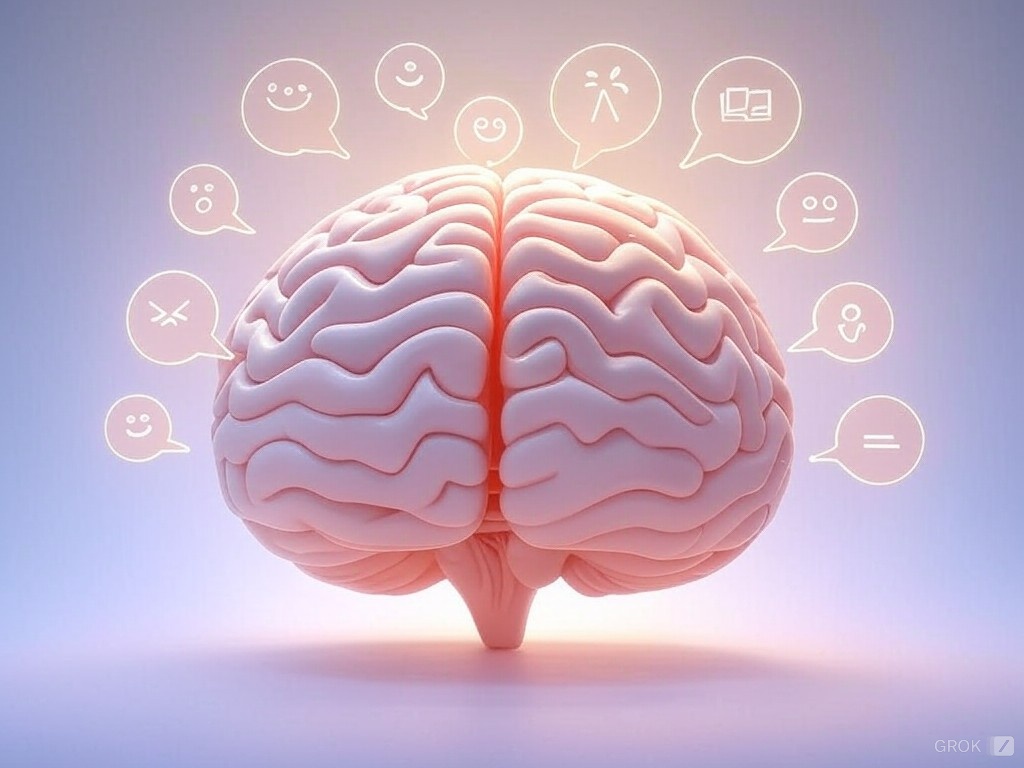The hidden cost of AI adoption: Indians are using ChatGPT at work without realizing the privacy risks 📊

You know those moments when you stumble upon something that completely changes how you see the world? That’s exactly what happened to me during what started as routine market research for my AI product.
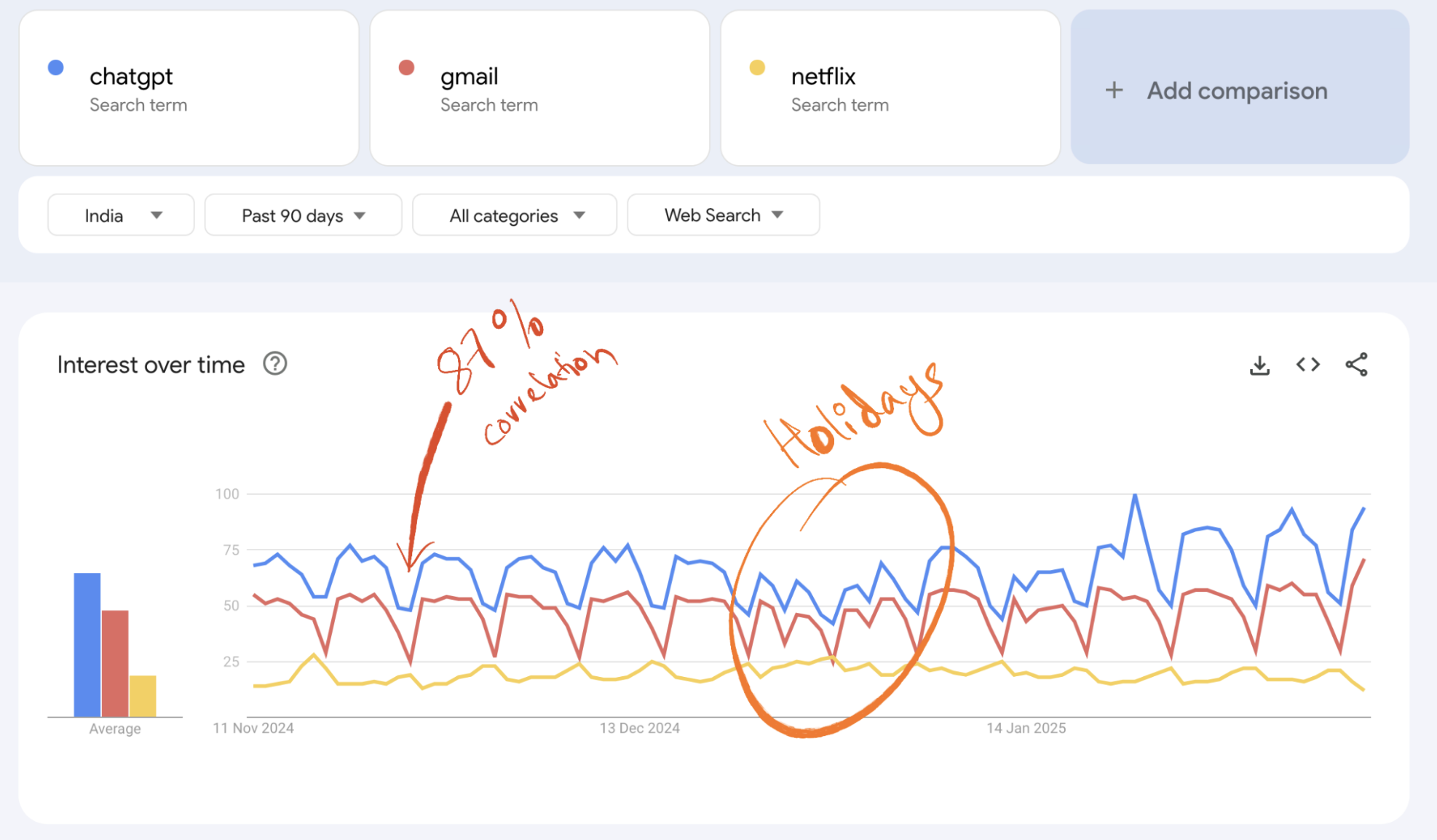
The Pattern That Kept Me Up at Night
It began with a peculiar observation in the traffic data. ChatGPT’s usage wasn’t random (duh) - it followed a distinctive weekly rhythm, surging on Mondays and quieting down over weekends. As someone who’s spent years analyzing market trends, this pattern nagged at me. There was something familiar about it, but I couldn’t quite put my finger on it.
Then it hit me.
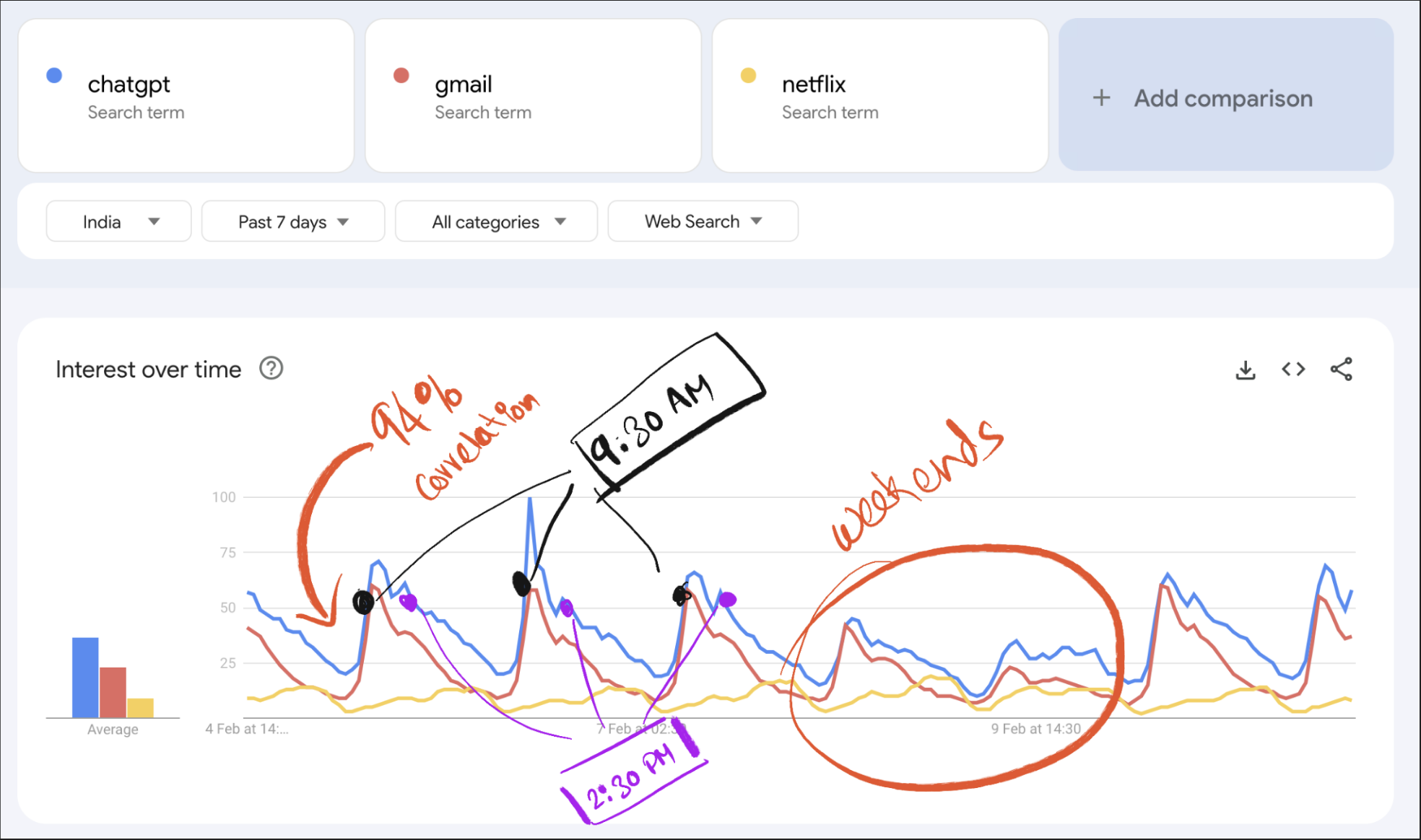
It is being used for work
On a whim, I overlaid ChatGPT’s traffic patterns with Gmail (also Canva and Office) usage data. The results made me spill my tea.
The correlation was a mind-boggling 94% for the past 7 days and 87% on the past 90 days. Also, during the holiday period between Dec 20 - Jan 5, all tools saw erratic (but still correlated) swings in their search volumes. I have waited around 3 weeks since my initial observation and the pattern and the correlation continues to hold. Google, however provides hourly data only up to 7 days and I lack the resources to collect data for a year, and I believe it is more important to publish sooner and keep collecting the data every 7 days, stitch them and perform a correlation analysis with a higher sample size for a higher confidence interval on the correlation
This is quite strong signal that ChatGPT is being used more and more in the workforce. And ChatGPT is slowly driving economic value and dependence.
Here’s what fascinates me: Nobody planned this. ChatGPT wasn’t marketed as the next big enterprise tool. It didn’t go through IT approvals or formal training programs. It just… happened.
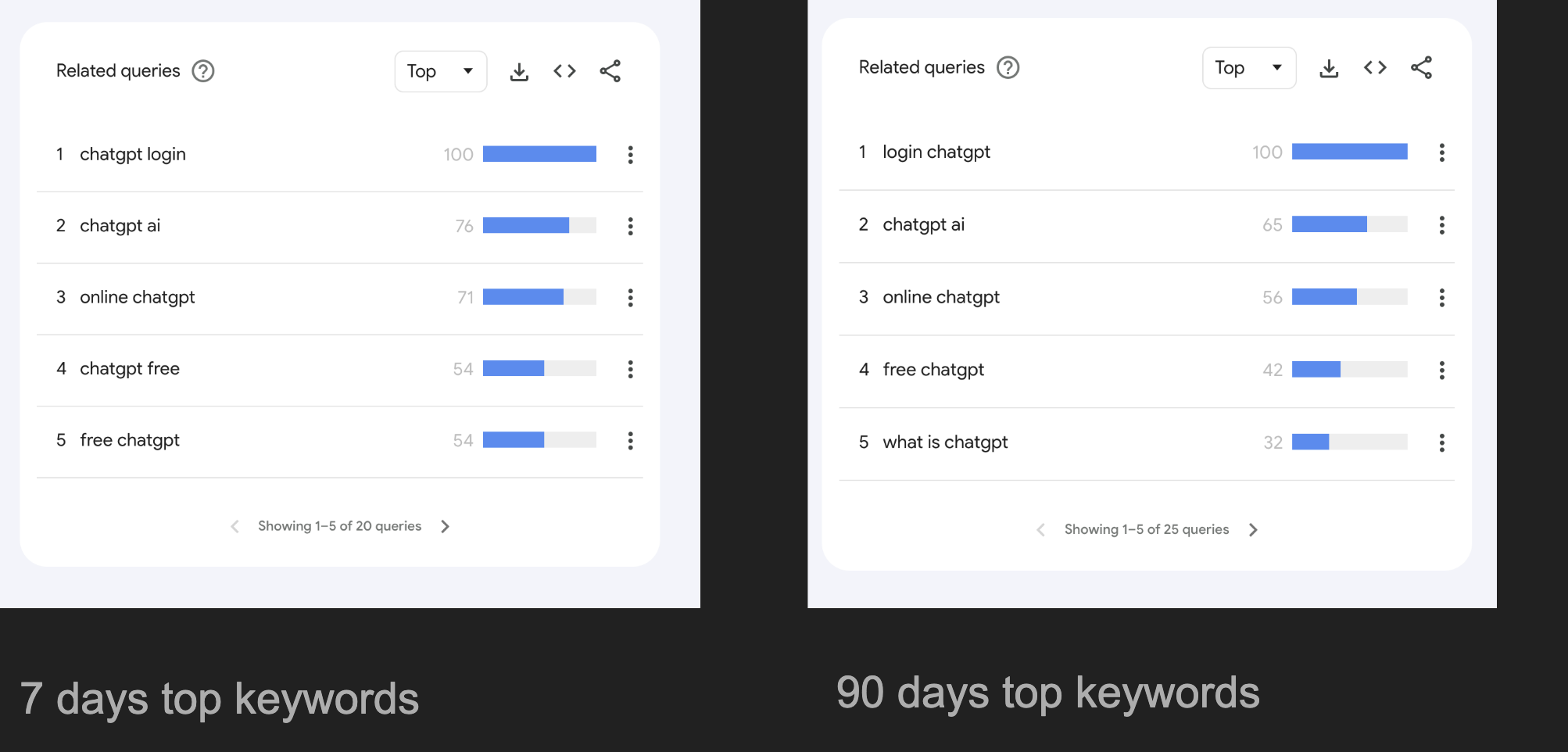
Why Google Trends matter?
The average person often doesn’t enter the URL (for example chatgpt.com) into their address bar, they simply type the “service” (chatgpt) they are trying to get to and hit enter. This triggers a google search in most browsers, and folks click on the first link to get to the site, leaving a trace of their usage in Google Search Trends.
And if we look at the top keywords, we also reflect that: keywords like “chatgpt login” or “free chatgpt” dominate the keywords.
Why is it risky?
It is risky because the standard ChatGPT lacks the necessary data protection laws to be considered Enterprise Software. And as employees are using it, often without authorization or knowledge, they might be disclosing sensitive trade or even defence secrets in their chats. For them, chatgpt might be drafting a doc or an email - but that doc or email remains with ChatGPT forever.
While ChatGPT does offer an Enterprise plan, this sheer volume of “work related” usage seem unlikely to come from their enterprise plan, simply because 95% of chatgpt users are using the free version. Reference
ChatGPT also has very loose Privacy Controls and employs several dark patterns to prevent people from accessing data sharing settings.

ChatGPT has more search volume than Gmail in India
Yes, you heard that right. In India, people google for (and use) ChatGPT more than Gmail. That high volume is very unlikely to originate all from enterprise usage as Gmail has one of the highest market penetrations in India at 62% as of 2011 and 82% as of 2025
ChatGPT might be used throughout the day
As we see very similar traffic patterns with ChatGPT, Canva, Gmail and other tools that are primarily used for work, it can be inferred that a ChatGPT tab is always left open, like the other tools. This also explains a second peak at 2:30, folks who shut their system down before lunch, re-open all these tools.
However, I do not have enough data to conclusively claim this. there might be other variables that might explain this. Variables such as Education, Time zone, work patterns etc.
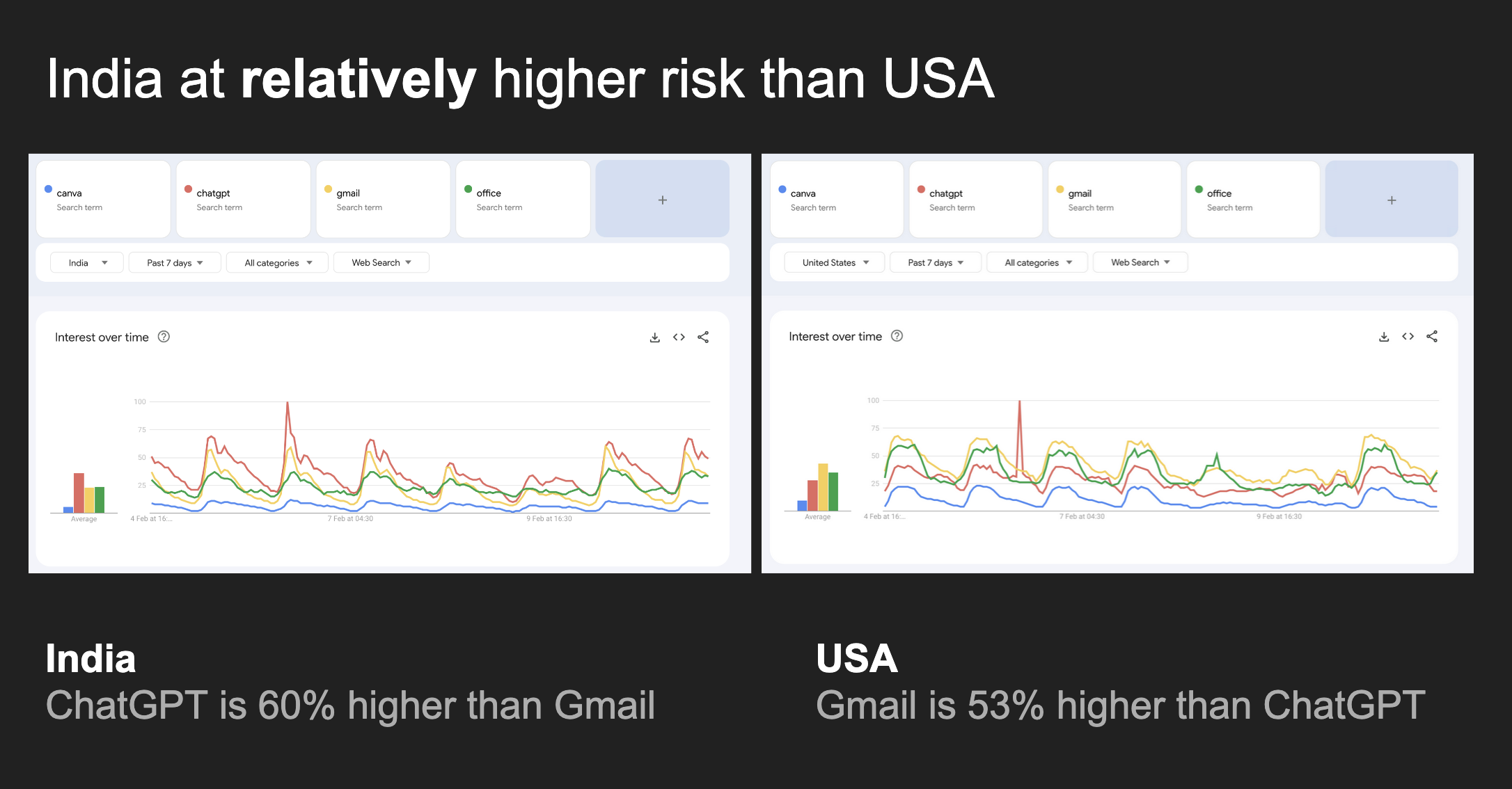
India is at a higher risk than US
The story gets even more interesting when you look at India versus the US. In the States, people search for Gmail 53% more than ChatGPT. But in India? It’s completely flipped - ChatGPT searches exceed Gmail by 60%.
This means we indians are increasingly more depedent on ChatGPT for doing our work, and something that threatens our economic integrity, and possibly national security?
Please ask yourselves:
If ChatGPT is being searched more than a tool with 82% market penetration And this is happening in a country with one of the world’s largest digital workforces. what are the privacy and national security implications of it?
The Privacy Puzzle That Haunts Me
This is where my excitement turned to concern. One sleepless night, I decided to map out ChatGPT’s privacy settings. What I found was troubling. It takes 5 clicks on web and 6 on mobile just to find the data sharing settings. Even more bizarre? The word “Privacy” doesn’t appear anywhere in the settings menu. For a tool that’s becoming as essential as email, this feels like a glaring oversight, one that is perhaps intentional.
I will definitely term it as a dark pattern. One that is designed to prevent users from accessing the privacy settings and turning of data sharing.
On Desktop Browser (people on the ChatGPT app wouldn’t be searching for it on Google), it takes these exact steps:
Profile Icon > Seattings > Data Controls > Improve Model for Everyone (on) -> Improve Model for Everyone (toggle) -> Done
And on Mobile Browser, it takes one extra click
Hamburder Menu > Name > Settings > Data Controls (tab) > Improve Model for Everyone (on) > Improve Model for Everyone (toggle) > Done
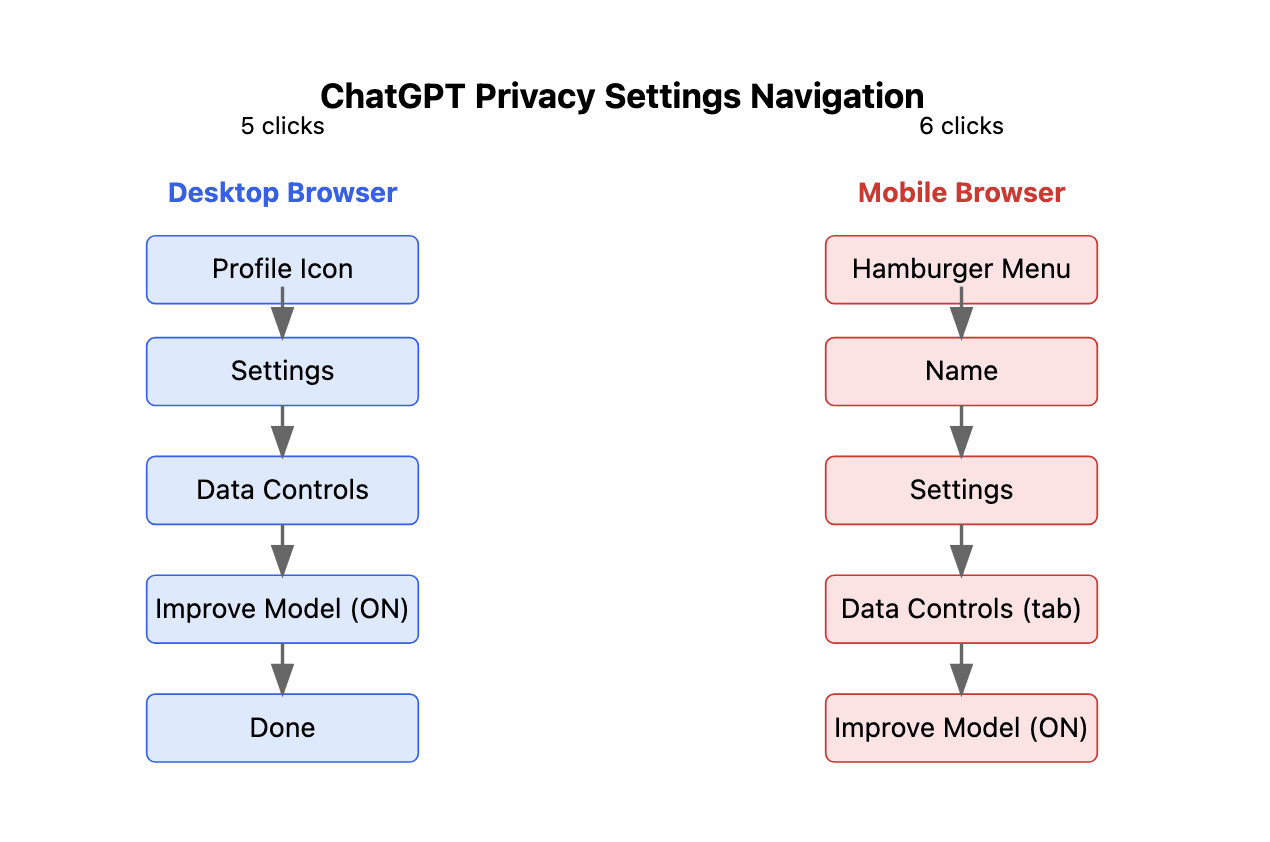
The Bigger Picture That Emerged
Here’s what keeps me thinking: India, unlike China with DeepSeek or the EU with Mistral, doesn’t have a homegrown alternative. We’re watching an entire economy’s productivity become increasingly intertwined with a single foreign AI tool. The data shows workday usage exceeding holiday usage by 1.5x - this isn’t experimentation anymore, it’s dependency.
What happens if OpenAI decides to change its policies tomorrow? Perhaps changes the free plan?
What can we do?
As individuals - stop sharing data with OpenAI if you use it for your work
The most immediate action we can take is to protect our own data. If you use ChatGPT for work-related tasks, immediately disable data sharing with OpenAI. Follow these steps:
On Desktop: Profile Icon > Settings > Data Controls > Improve Model for Everyone (toggle off) > Done
On Mobile: Hamburger Menu > Your Name > Settings > Data Controls (tab) > Improve Model for Everyone (toggle off) > Done
As Businesses and Institutions:
Ignoring the rise of AI tools in the workplace is no longer an option. Instead of punitive measures, a more effective approach is to embrace and guide their usage.
Invest in Enterprise-Ready AI Tools: Explore alternatives like ChatGPT’s enterprise offerings, Perplexity, Gemini, and Claude, which address data privacy concerns and offer robust security features.
Provide Training and Guidelines: Equip your employees with the knowledge and best practices for using AI tools responsibly and securely. Establish clear guidelines on what type of data can be shared and how to protect sensitive information. This empowers employees to leverage AI’s benefits while mitigating risks.
As Policymakers, Governments, and Other Entities:
While I may not be an expert in policy, as a concerned citizen with technical skills, I believe it’s my responsibility to voice my concerns and suggest potential paths forward.
Promote Homegrown AI Innovation: India has the talent and potential to develop its own robust and secure AI ecosystem. Investing in research, development, and infrastructure is crucial. We need to foster an environment that encourages Indian innovation in this critical field.
Open Dialogue and Collaboration: This issue requires open dialogue and collaboration between policymakers, industry leaders, and the public. We need to discuss the implications of widespread AI adoption and work together to develop effective strategies for addressing the challenges. I, for one, would be eager to contribute to this conversation.
Where Do We Go From Here?
As I write this, I can’t help but wonder about the implications. We might be witnessing the fastest adoption of a productivity tool in history, happening completely organically. It raises questions that I believe every tech leader should be pondering:
- How deeply has this AI woven itself into our daily work lives?
- What happens if OpenAI decides to change its policies tomorrow?
- How do we balance this incredible utility with privacy, security and other concerns?
The data tells me that in India, ChatGPT is becoming as fundamental as email. As someone building in this space, I find this both exciting and terrifying. It’s a transformation that deserves our attention, our scrutiny, and most importantly, our thoughtful consideration about where it’s leading us.
I’d love to hear your thoughts on this. Have you noticed similar patterns in your workplace? How is AI reshaping your daily work routine?


